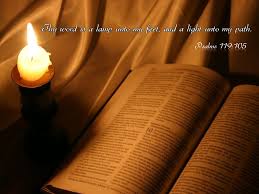Depart from me…
Picture the stoic traditionalist teachers of the Bible venturing out from the mega-cathedral to a far from urban valley of the Jordan and encountering a crowd that should be in church. They are listening to an unkempt man with uncut hair and rags of animal skins and leather. As they descend the dirty hillside toward the river in their custom-made finery, he acknowledges their addition to the crowds.
“You brood of vipers! Who warned you to flee from the wrath to come? 8 Bear fruit in keeping with repentance… – Matthew 3:
Pretty bold talk from a Nazarite to esteemed teachers of the Law from the Temple. Could John have had Psalm 119 in mind?
Psalm 119 – English Standard Version (ESV)
Your Word Is a Lamp to My Feet
Samekh
113 I hate the double-minded,
but I love your law.
114 You are my hiding place and my shield;
I hope in your word.
115 Depart from me, you evildoers,
that I may keep the commandments of my God.
Although the EST statement ‘I hate the double-minded,’ brings hated hypocrites like the Pharisees, Sadducees, certain preachers and christians to mind, the KJV stated: ‘I hate vain thoughts.’
Indeed, the Psalmist is not condemning (yet) those with double-minded thoughts. John, as he baptized and cleansed into repentance those in the crowds with ears to hear was not hiding in the Jordan valley; rather his hiding place was in the Lord and in the hope of God’s word.
All of us must take heed to vain thoughts and ideas of our own (not of God). Vain thoughts are ambivalent, divided and half-hearted. Of course we are to love the Lord our God with all our mind (not just some of it). Hypocrisy, like that frequently demonstrated by the Pharisees is the intentional action of a double-minded believer.
John continues his warnings to his audience:
10 Even now the axe is laid to the root of the trees. Every tree therefore that does not bear good fruit is cut down and thrown into the fire.
This same double-minded, half-hearted faith comes to mind in Jesus parable in Matthew 7:
17 So, every healthy tree bears good fruit, but the diseased tree bears bad fruit. 18 A healthy tree cannot bear bad fruit, nor can a diseased tree bear good fruit. 19 Every tree that does not bear good fruit is cut down and thrown into the fire.
Christ Jesus was also most critical of this half-attitude of belief. In these last days, the axe is at the root of the tree of the church.
The Psalmist continues his plea to God:
116 Uphold me according to your promise, that I may live,
and let me not be put to shame in my hope!
117 Hold me up, that I may be safe
and have regard for your statutes continually!
118 You spurn all who go astray from your statutes,
for their cunning is in vain.
119 All the wicked of the earth you discard like dross,
therefore I love your testimonies.
120 My flesh trembles for fear of you,
and I am afraid of your judgments.
Again, we did not receive the baptism of repentance and the cleansing of the Cross of Christ to appear as dross to a world that looks to the church and christians for every defect and impurity.
“Be holy, as I am holy,” says the Lord.


Leave a Reply